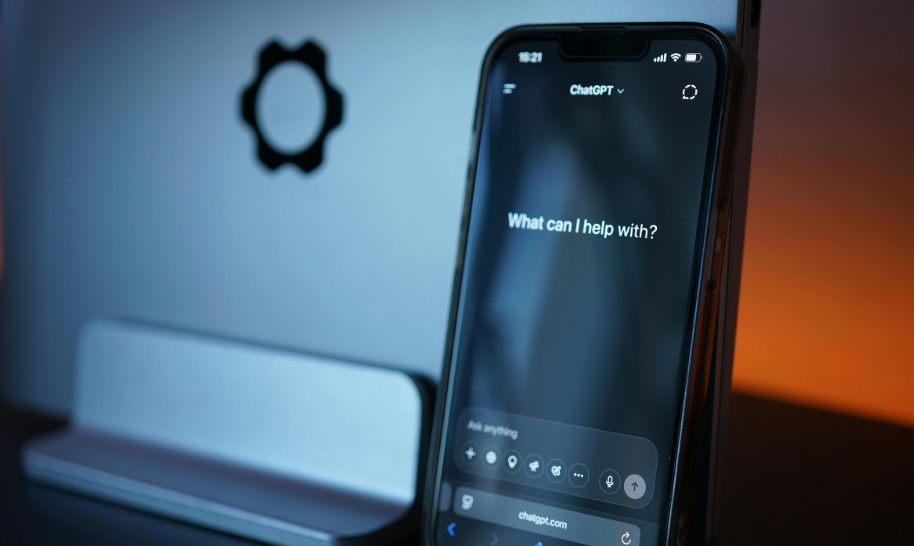The market for healthcare software solutions was worth an estimated $11.5 billion in 2014 and is projected to reach an incredible total of $316.8 billion by 2027 - its growth speaks volumes: mobile health apps are becoming an ever-increasing reality!
Mobile technology has made it easier than ever for healthcare providers to bring care directly to patients instead of having to travel somewhere for it. From physically seeing them in their home environment or employing telemedicine services, this technology now exists so healthcare can meet consumers wherever it's convenient for them.
This blog serves as a basic introduction to mobile health apps (mHealth apps). Here, you will learn several aspects related to them, such as their types, advantages, how to build them, overall cost, and many others.
What is MHealth (Mobile Health)?
Mobile health, or mHealth, has quickly become the topic of conversation in recent months. This term refers to the integration of cutting-edge technologies with the healthcare sector - hence why healthcare app development has become an absolute necessity in recent times.
Medical experts have already started adopting eHealth technologies, using computers or mobile devices, to deliver public healthcare efficiently. Thus, mHealth apps offer another layer of eHealth support by gathering all clinical and community data about patients that are collected in real-time by healthcare providers.
Over the past several years, numerous mobile health applications have been developed globally in order to provide better medical access and care to users or patients. Mobile health apps also aim to make healthcare professionals' work simpler by offering direct contact with medical specialists (no long waits needed!), custom meal plans created specifically for each patient's diet needs, safe storage for medical history files, data storage requirements, medication schedules, monitoring various symptoms, disease states and many more.
FitOn, Pillow, Clue, and Welltory are just some examples of mHealth apps available; there are others for different needs as well.
Types of mHealth Apps
Today's Mobile Health Apps have quickly taken the market by storm, and this list provides pictures of making changes.
Type 1: Remote Monitoring Apps
Waiting in long hospital lines to attend to patients was once an age-old tradition; now, we work remotely across every field to deliver excellent services to customers.
Remote monitoring apps offer healthcare professionals a way to monitor blood glucose, heart rate, and blood pressure without actually needing to contact their patients directly.
These apps enable mHealth providers to monitor the health conditions and progress of their patients throughout their medical treatment, as well as store patient records such as test reports, medicine information, and more that physicians can access at any time.
Type 2: Telemedicine Apps
Telehealth app development provides virtual mHealth amenities to patients. Appointments can now be managed, symptoms verified, medical queries asked, answers received electronically, and prescriptions prescribed electronically without ever leaving home. Telemedicine connects patients and doctors without physical interaction required between appointments.
Mobile health apps allow people to live a healthier and happier lifestyle using cutting-edge technologies. Telemedicine apps deliver real-time mobile healthcare development solutions directly to patients seeking treatment so that treatment can begin almost instantly.
Virtual reality, augmented reality, and AI technologies present great promise to improve telehealth services.
Type 3: Fitness and Health Apps
Wearable monitoring has become an emerging trend in mHealth technology. Wearable devices connected to smartphones or other digital devices can track various aspects of daily routine.
Wearable monitoring encompasses two key aspects-monitoring vital signs and fitness activities. Devices like wristbands and smartwatches that utilize wearable monitoring technology to track heart rate, pulse rate, glucose levels, and much more are stored in mobile apps so patients can respond immediately to any sudden changes within their bodies.
Type 4: Clinical and Diagnostic Apps
With clinical and diagnostic apps, doctors can now easily collect patients' data, maintain records based on their medical conditions, evaluate them, and share them - providing easy access to Electronic Medical Records (EMR) and Electronic Health Records (EHR).
This clinical app allows health providers to view lab results, examine electronic health records, and perform digital imaging. Furthermore, it assists patients and doctors in diagnosing illnesses quickly, as well as scheduling appointments rapidly.
Type 5: Appointment Scheduling and Management Apps
This app enables patients to easily schedule online appointments with their respective physicians more quickly and conveniently, as well as set reminders for prescriptions, water consumption, caloric intake, sleeping times intervals, or medications to be taken next.
Type 6: Reminder Apps
Your smartphone likely includes alarm settings to remind you to drink water, take medicines, or take other necessary actions. Still, reminder apps go a step further by reminding users when appointments or doses need to be taken (this doesn't just apply to reminder apps; other mobile health apps offer similar functionality as well). While sometimes included as part of larger apps (as part of larger health packages, for instance), reminder apps may also stand alone. They can provide notifications in real-time as needed.
Type 7: Mental Health Apps
Mental health apps are types of mHealth applications designed to make therapies more efficient, flexible, and accessible. If designed appropriately for app development, mental health apps can help battle insomnia, anxiety, stress, and depression by offering pre-recorded meditations, soothing songs, gamification components, and breathing exercises as ways of combating insomnia, anxiety, stress, or depression.
Step-by-step Process to Build a mHealth App
Now that we've discussed some significant benefits associated with mobile health apps let's review the key steps necessary for successful mobile app creation.
Step 1: Understand Client Needs
It is key that when developing a mHealth app, we understand client needs and requirements thoroughly. Once this step has been accomplished, identify their issues and how mobile health app development could provide relief. Furthermore, at this stage, we must research potential medical fields where your app could be published for publication.
Step 2: Consider Platform Options
Step two in developing mobile healthcare apps involves selecting an ideal platform - Android, iOS, or the web.
Step 3: Hiring an Ideal App Development Company
Partnering with a reliable software development company will guarantee an app designed with all the latest features and functionalities. A company like this typically features teams of UX/UI designers, expert mHealth app developers, marketing professionals, and customer care representatives, all offering advice tailored specifically toward fulfilling client's requirements and specifications.
Step 4: Determine Your Monetization Model
The primary goal of any app, regardless of genre, is to generate revenue, and healthcare mobile apps are no different - their revenue models focus on subscription-based and freemium models with paid access to premium services.
Step 5: Create an MVP
Mobile health app developers need to develop and test an MVP before it enters the market in order to properly test and validate applications prior to being released to end-users for evaluation and feedback purposes. Furthermore, creating an MVP software development helps end-users share their experience and give feedback about your mobile health app.
Step 6: Test Your mHealth App
Testing is an integral component of healthcare mobile app development. Professional app developers conduct comprehensive evaluations of content, user experience, and usability of healthcare mobile apps before proceeding with action. Testing helps identify loopholes or bugs early, reduces development time frames while keeping costs affordable, and enhances the reputation as a service provider.
Step 7: Launch and Track Performance
Users will appreciate mHealth app developers who take great care to test mobile health applications before publishing them, as this ensures users receive optimal service from these applications. Afterward, track its efficiency and performance after going live.
Challenges During Development of mHealth Apps
While developing mHealth apps can be an exciting endeavor, they present specific challenges during development that should be carefully considered during their creation process. Here are a few challenges to look out for:
Challenge 1: Incomplete Knowledge About Supply and Demand
A mobile healthcare app development company's failure to understand current requirements and the type of solution people are looking for can throw the entire demand/supply equation off balance, leading to lost business opportunities and rejection by its target demographic as the product fails to achieve its purpose.
One must conduct an in-depth market analysis that takes into account demographics, types of patients prevalent in the region, existing competitors, ROI analysis, present requirements among people, etc.
Challenge 2: Data Security of mHealth Apps
Mobile health apps collect a vast amount of sensitive data daily that must be protected to avoid hacker breaches and misuse, making data security one of the top priorities and challenges faced by mHealth app development companies.
Challenge 3: Compatibility with Legacy Medical Systems
Legacy enterprise systems may not always be compatible with modern technologies and apps and thus fall out of sync with more sophisticated medical systems and mHealth apps. One factor behind this incompatibility may be due to outdated legacy technology being in use across much of the globe.
Challenge 4: Not Ensuring Usability and Interoperability
Although designing and providing quality features is important, usability must also be prioritized when developing apps. With so many mobile phones and operating systems being used by people today, it can be quite a daunting challenge for apps to integrate and be compatible with each device properly.
Challenge 5: Failed Patient Engagement
With numerous companies investing in developing mobile healthcare apps, users have many choices available to them when selecting which app they will use from healthcare centers or clinics. Patients want not only smooth monitoring and updating of health statuses; engagement with these apps must be maintained to keep patients coming back for more.
Challenge 6: Poor User Experience
Unfortunately, not every app considers user comfort and, therefore, fails to deliver an enjoyable user experience. At times, the apps do not integrate well with healthcare centers or doctors, resulting in delayed treatment that misses the entire point of mobile healthcare. Furthermore, wearable device integration and mobile device usage are equally vital to the seamless functioning of a mHealth app.
Development Cost of mHealth Applications
When considering mobile health app development, costs are the first thing that comes to mind.
The cost of creating healthcare mobile apps usually ranges between $45,000 and $80,000, while developing these apps with emerging trends like artificial intelligence or big data could run anywhere between $100,000 and $150,000. Note that these are approximate figures, as costs depend upon your specific requirements and specifications.
Therefore, please keep this estimate as an approximate cost of mobile health app development. Please keep in mind there may be other variables at play, including healthcare app developers' location, features you wish to add, and complexity, which could significantly change or increase this estimate.
Budgeting for the development stage should take into account several important aspects, including:
Factor 1: App Features
The costs associated with creating a mHealth app with extensive functionality and numerous features are likely to be considerably higher than building one with basic functions or minimal components, which is why it is crucial that before adding additional bells and whistles, users should first determine whether their interest lies with those particular functions or features.
Factor 2: Platform Type
Healthcare apps are typically developed using frameworks customized specifically for iOS and Android platforms. However, hybrid app development techniques and web technologies may also be used for development with native shells. Hybrid apps add layers between target platforms and source codes; as a result, hybrid versions of healthcare applications may run slightly slower.
Cost of Building the App The total cost associated with developing a mobile healthcare app varies depending on its platform type. A hybrid app could cost as much as $600,000. A native application might cost about $400,000.
Factor 3: UX/UI Design
Aesthetic considerations play a large part in estimating the costs associated with healthcare app development.
Healthcare apps appeal to an expansive demographic of all ages. By considering the requirements of target personas and designing apps with user-friendly UX/UI functionality, such as simple navigation and subtle colors, an estimate can be given of final costs.
Factor 4: Time to Market
What's your timeline for developing an app? Whether three months or 10 months are estimated as its completion. Remember to factor in unexpected project delays--new releases and integration changes from third parties often cause unexpectedly long development timelines.
Factor 5: In-House Vs. Outsourced
This factor is of immense significance when calculating the cost of developing a mobile app. From a financial standpoint, many factors favor in-housing an app; these range from expertise to team size considerations. Smaller teams tend to lack the sufficient budget, time, and attention necessary for producing great apps. Larger ones may have the resources available but still should carefully evaluate all their options when making this decision.
Factor 6: Regulations & Compliance
HIPAA compliance for health apps is of critical importance; failing to do so could result in legal action with fines between $100 to $50,000, depending on severity or frequency. Companies must factor in costs associated with being fully compliant, which typically ranges between $10k-$15k annually.
Factor 7: App Maintenance & Support
The total development cost for medical mobile apps depends heavily on maintenance and support services as well. Monthly upkeep fees typically range between $1,000 to $10,000 per month, depending on its complexity as well as how big of a team must provide this support.
At the same time, costs for updating healthcare apps can vary widely depending on their scope and complexity. Minor updates like bug fixes and minor feature additions cost as little as $500-1,000. In contrast, larger-scale updates that require significant development time and resources can cost tens of thousands.
Benefits of mHealth Applications
But what really makes this sector worth investing in are its amazing advantages outlined below:
Benefit 1: Improved Decision-Making/Improved Diagnostic Accuracy
MHealth apps provide many benefits that enhance diagnostic efficiency and decision-making, connecting patients and doctors through remote communication channels through the app to facilitate easier understanding of medical conditions and treatment recommendations and provide effective care accordingly.
By automating monitoring processes for symptoms and health metrics remotely via mHealth applications, correct diagnoses increase greatly with reduced errors occurring over time.
Benefit 2: Real-time Communication
Mobile Health (mHealth) allows patients and healthcare providers to remain in constant communication via text messages, chats, and video calls. This real-time interaction improves rapport between them while saving them visits by physicians to their patients.
Benefit 3: Greater Accuracy
With all their medical details stored in one central place, patients have easy access to them from any personal device - including mobile phones - at any point during treatment, speeding up medical care at any given moment and helping doctors avoid misdiagnosis errors by quickly accessing patient details. This ensures faster medical therapies. It also prevents any potential pitfalls caused by doctors themselves and reduces faulty diagnosis errors.
Benefit 4: Improved Efficiency
With the advent of mobile health apps, physicians and healthcare providers are improving their work efficiency as less paperwork must be handled, freeing them to focus on patient care instead of paperwork administration. This automation utilizes machine learning algorithms combined with artificial intelligence.
Benefit 5: Easier for Caregivers and Patient Families
Mobile healthcare apps have made the lives of caregivers and patient's families much simpler, providing direct communication with healthcare professionals while tracking progress reports and symptoms over time, leaving less room for errors to arise.
Additionally, family and caregivers of patients can utilize data gleaned from reports and symptoms to analyze any potential health risks - saving the last-minute hassle of rushing to hospitals in extreme cases and possibly saving lives in extreme circumstances.
Benefit 6: Promising Results in Remote Areas
Mobile health applications are particularly useful in remote locations where hospital or clinic care is scarce. In such an instance, these apps allow constant tracking of key health metrics through the app as well as basic patient care provision instead of frequent doctor visits - it effectively manages extreme conditions while giving time for the preparation of medical treatment.
Benefit 7: Opportunities for New Businesses
Mobile apps open up opportunities for app development companies to invest in this industry. Due to population growth worldwide, these firms have an enormous opportunity in the coming years. Furthermore, existing companies also have a chance to adjust their business models to accommodate current mHealth industry requirements.
Benefit 8: Lower Healthcare Expenses
Mobile health apps can save significant healthcare expenditures by offering spontaneous connectivity, accuracy, and advancement features that reduce hospital readmission rates as well as healthcare expenditure overall. This leads to savings on overall expenditure costs incurred through hospital care costs and hospital readmission rates, leading to comprehensive cost-cutting measures within healthcare facilities.
Conclusion
Mobile health (mHealth) has become the fastest-growing industry during pandemic times. The mHealth sector has completely revolutionized and created space for further developments of apps that make life healthier for millions of people around the world.
With these advances in mind, we will witness rapid advancement in mHealth app development as it seamlessly embraces cutting-edge tools and technologies to create robust apps.
Modern mHealth apps are tailored to monitor patients' physical and mental well-being while creating seamless communication channels between healthcare providers and patients.
Professionals of mobile health (mHealth) have proven their immense ability when providing patients with care. We can assist in creating the ideal mHealth solutions using state-of-the-art technologies and enable on-demand app development for mobile health.
Reach out to us now to gain more insight into mHealth app development!
Start the Conversation
We collaborate with companies worldwide to design custom IT solutions, offer cutting-edge technical consultation, and seamlessly integrate business-changing systems.
Get in TouchUnlock the power of AI and Automation for your business with our no-cost workshop.
Join our team of experts to explore the transformative potential of intelligent automation. From understanding the latest trends to designing tailored solutions, our workshop provides personalized consultations, empowering you to drive growth and efficiency.
Go to Workshop DetailsExplore Our Latest Articles
Stay abreast of what’s trending in the world of technology with our well-researched and curated articles
View More InsightsCost Breakdown to Build a Custom Logistics Software: Complete Guide
Global logistics is transforming faster than ever. Real-time visibility, automation, and AI...
Logistics Software Development Guide: Types, Features, Industry Solutions & Benefits
The logistics and transportation industry is evolving faster than ever. It’s no longer...
From Hurdle to Success: Conquering the Top 5 Cloud Adoption Challenges
Cloud adoption continues to accelerate across enterprises, yet significant barriers persist....
Gen AI for HR: Scaling Impact and Redefining the Workplace
The human resources landscape stands at a critical inflection point. Generative AI in HR has...




